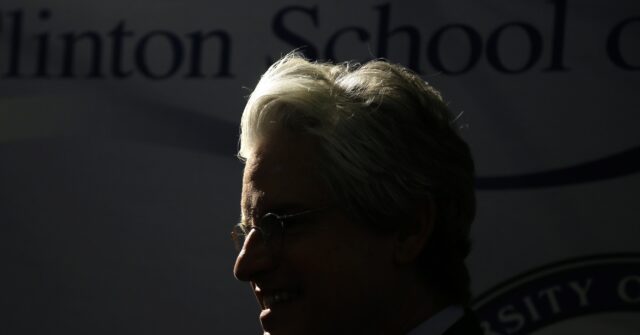Project 65, a left-wing advocacy group characterized as a “dark money” organization, is actively targeting attorneys who represented former President Donald Trump during the 2020 election. This initiative raises concerns about the ability of lawyers to freely represent clients without fear of retribution or professional consequences. An advertisement released on Instagram signals a warning from Project 65 to potential Trump attorneys, advising them that their involvement could lead to disbarment or ethical challenges. The ad specifically mentions the ethics complaints against Porter Wright, a law firm that previously represented Trump, and warns legal professionals not to risk their licenses by participating in what the group describes as attempts to “subvert democracy.” This tactic appears intended to intimidate attorneys and undermine Trump’s legal defense.
Porter Wright is a firm with a notable history of representing Trump in a Pennsylvania election lawsuit. However, the attorneys at Porter Wright quickly withdrew from the case under significant public and professional pressure following the 2020 election. The complaints referenced in Project 65’s ad were initiated by the group itself against two of the firm’s partners, Ronald Hicks and Carolyn McGee, in 2022. Although these attorneys severed ties with Trump’s case before any formal hearings, they have since moved to another law firm, Nelson Mullins. As of now, there is no evidence indicating that the Pennsylvania Office of Disciplinary Counsel has taken any steps against them, suggesting that the allegations made by Project 65 have not led to substantive disciplinary actions.
Project 65’s formation is closely associated with David Brock, a known ally of Hillary Clinton and founder of various left-leaning organizations. The group operates without the disclosure of its funding sources and has relationships with influential figures in the Democratic party, according to reports such as those from Axios. Its primary agenda appears to be focusing on discrediting attorneys who represented Trump’s 2020 election campaign, thus potentially diminishing the legal resources available to Republicans as the upcoming November 2024 elections approach. It’s estimated that around 100 attorneys have been targeted by individuals associated with Project 65, indicating a broad effort to undermine Trump’s legal support system.
In its warnings, Project 65 implies that merely considering representation of Trump may jeopardize a lawyer’s standing within their professional community. The ethical and legal implications of their campaign raise serious questions about the chilling effect such actions could have on attorneys’ willingness to engage with controversial clients. The American Bar Association (ABA) has established a set of Model Rules of Professional Conduct aimed at ensuring lawyers use legal processes appropriately without resorting to intimidation or harassment. Project 65’s tactics may verge on violating these principles, as they appear to leverage public sentiment to stifle legal representation, a fundamental component of the American judicial system.
Additionally, the Sixth Amendment of the U.S. Constitution guarantees the right to counsel in criminal proceedings, underscoring the importance of ensuring that individuals have legal representation, regardless of the political implications. As Trump faces multiple criminal charges, the necessity for a robust legal defense is ever more critical. The strategic targeting of attorneys by Project 65 not only raises profound ethical concerns but also poses a potential threat to the integrity of the legal profession by attempting to exert undue influence over which lawyers may represent high-profile clients based on political affiliations.
In summary, Project 65’s actions exemplify the increasing politicization of legal representation, particularly related to controversial figures like Trump. By threatening disbarment and creating an environment of fear, the organization aims to deter legal professionals from providing counsel to those associated with Trump’s legal challenges. This strategy not only puts the legal community at risk of politicized reprisals but also undermines the foundational principles enshrined in the Constitution regarding the right to legal representation. As legal battles loom ahead of the 2024 elections, the ramifications of Project 65’s campaign may have lasting implications for the Republican party’s legal strategies and the broader landscape of political engagement in the legal field.

